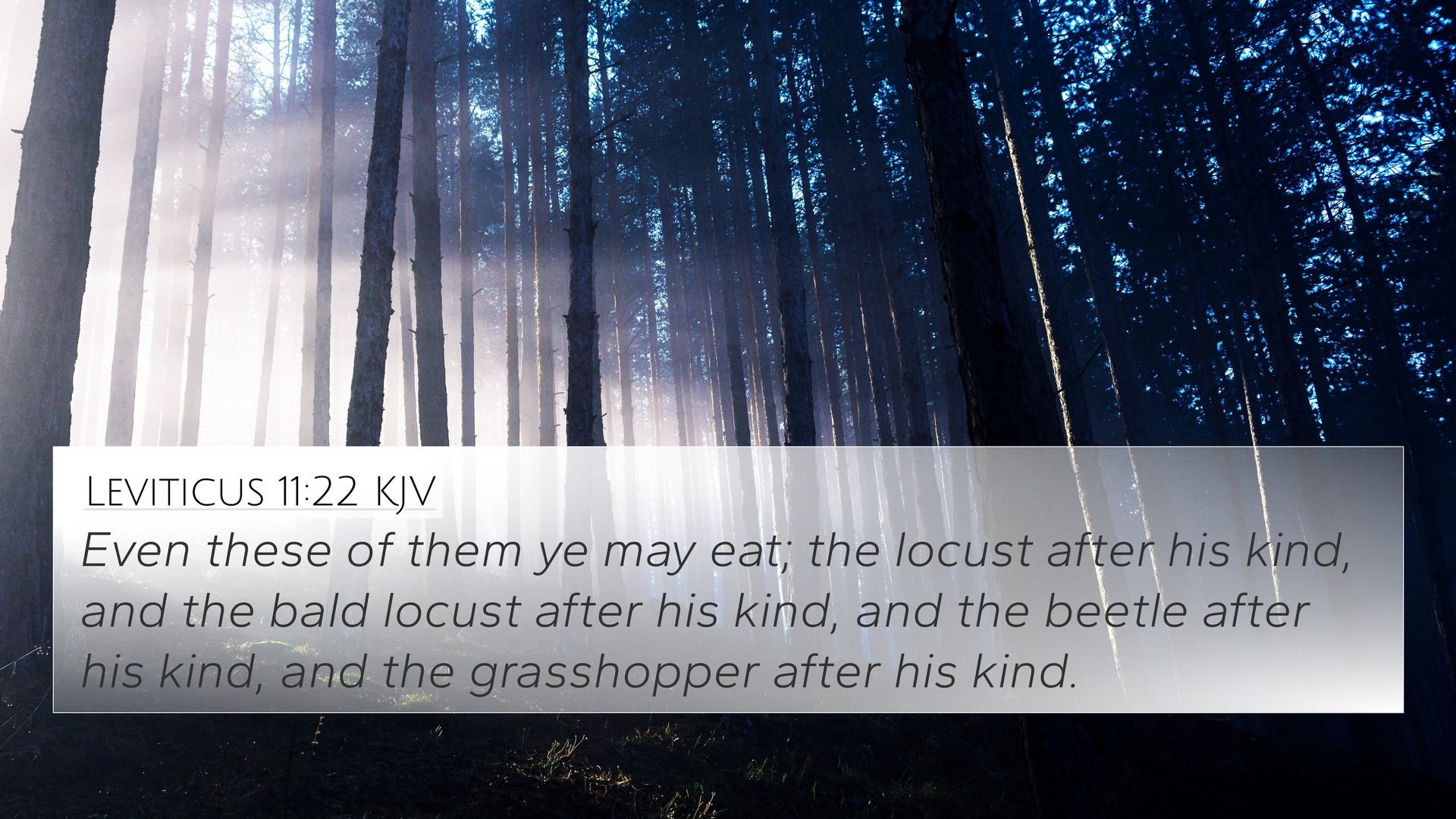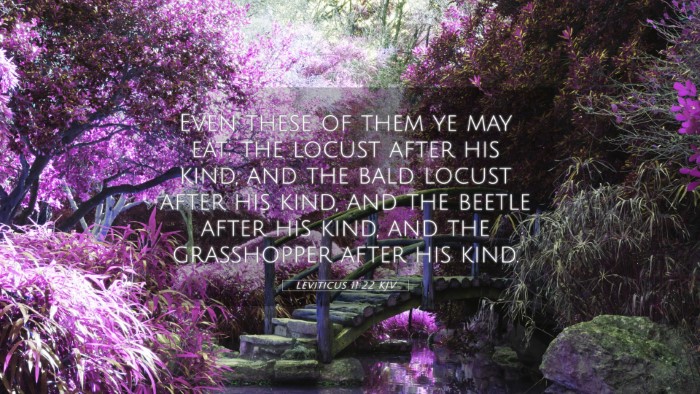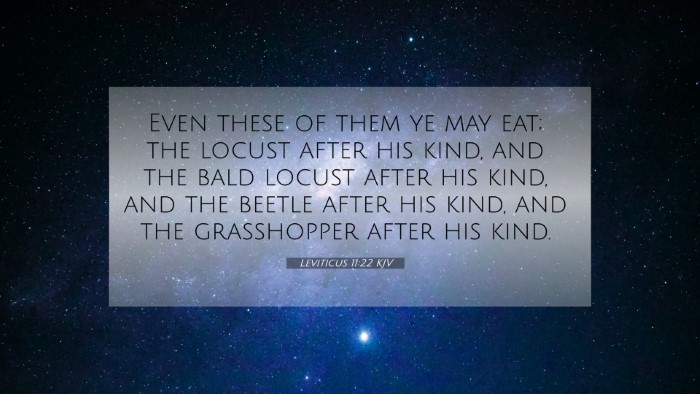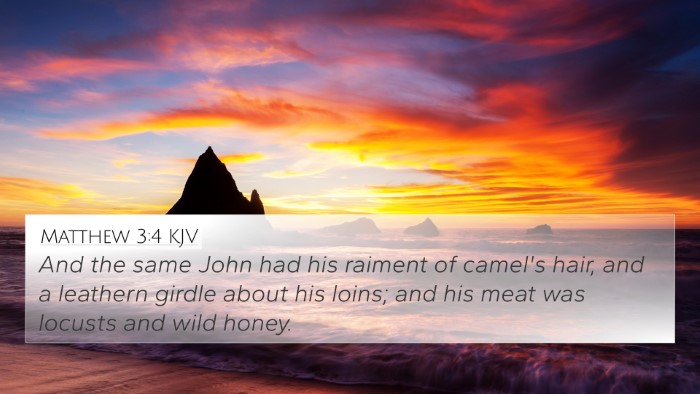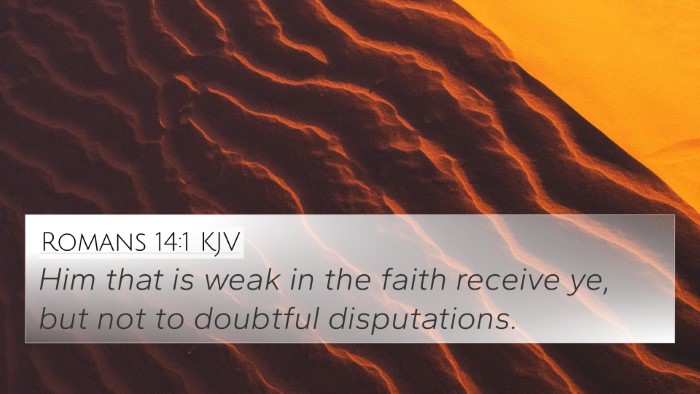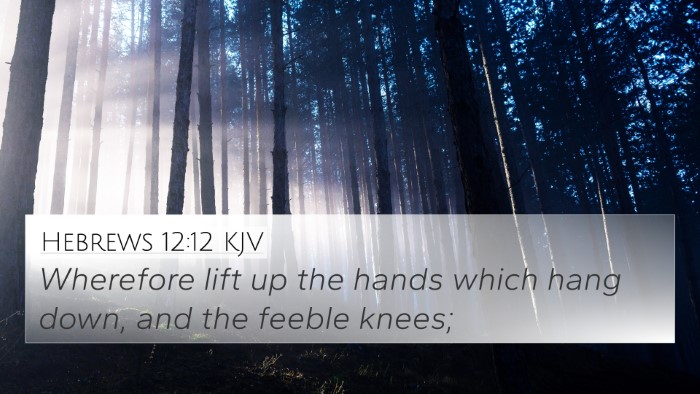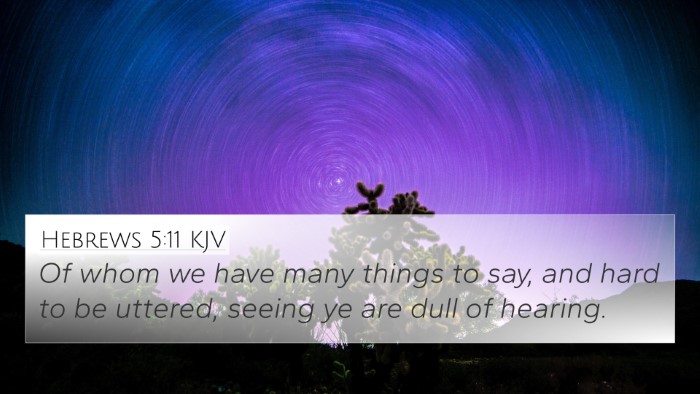Understanding Leviticus 11:22
Bible Verse: Leviticus 11:22 states: "Of them you may eat: the locust after its kinds, the bald locust after its kind, the cricket after its kinds, and the grasshopper after its kinds."
Context and Background:
In Leviticus, we find a comprehensive list of dietary laws that God provided to the Israelites. These regulations, often referred to as 'kosher' laws, established distinctions between clean and unclean animals. Leviticus 11 serves as an essential part of the Israelite identity, shaping their practices and relationship to purity and holiness.
Commentary Insights:
-
Matthew Henry: He emphasizes the significance of God's commands concerning dietary restrictions as a means of teaching the people about holiness. The mention of certain insects, including locusts and grasshoppers, indicates that God allows the Israelites to eat specific creatures that are often considered lowly or insignificant, thus demonstrating God's provision.
-
Albert Barnes: Barnes notes that while the Israelites were generally prohibited from consuming insects, the exceptions made for certain kinds symbolize God’s mercy and provision for their needs. This highlights how even within the constraints of law, God offers avenues for sustenance.
-
Adam Clarke: Clarke expands on the significance of cleanliness and obedience in God’s laws. His commentary suggests that these dietary laws foster discipline and a constant reminder of the Israelites' covenant with God, distinguishing them from other nations.
Bible Verse Cross-References:
- Deuteronomy 14:3-21: Discusses clean and unclean animals in greater detail.
- Matthew 15:11: Jesus teaches that it is not what enters the mouth that defiles a person but what comes out of it.
- Acts 10:12-15: Peter receives a vision that challenges dietary restrictions and symbolizes God's grace extending to Gentiles.
- 1 Timothy 4:4-5: Paul states that all food created by God is good and can be received with thanksgiving.
- Leviticus 20:25: Reinforces the call for Israel to distinguish between clean and unclean.
- Isaiah 66:17: Speaks about those who eat the flesh of pigs, suggesting a link to divine judgment.
- Romans 14:14: Paul clarifies that nothing is unclean in itself, emphasizing love and acceptance in dietary practices.
Thematic Bible Verse Connections:
Leviticus 11:22 can be explored alongside themes of holiness, purity, and the provision of God. The verse’s focus on specific edible insects can lead to a comprehensive study on the broader implications of dietary laws and how they link to the New Testament’s teachings on the law through Jesus and Paul.
Cross-Referencing Biblical Texts:
When engaging in cross-referencing Bible study, this verse invites discussions on how Old Testament dietary laws connect and contrast with New Testament teachings. Tools for Bible cross-referencing can help uncover these connections, teaching us about the continuity of God's message through different covenants.
Comparative Bible Verse Analysis
Analyzing this verse in comparison with Matthew 15:11 reveals a thematic evolution in understanding cleanliness. While Leviticus sets forth a framework for physical purity, Christ expands this concept into the realm of spiritual integrity.
Inter-Biblical Dialogue
The conversation between Levitical law and New Testament grace, particularly in Acts 10, exemplifies how God’s plan unfolds through scripture. The permission to eat certain insects underscores God’s radical grace in the New Covenant, drawing Gentiles into His mercy and blessings.
Conclusion
Leviticus 11:22 serves as a crucial component in understanding the greater narrative of divine law, human obedience, and the overarching theme of God’s provision. Through careful cross-referencing, one can derive significant insights and practical applications for life today.
Further Study:
For more detailed exploration, consider utilizing a Bible concordance or a cross-reference Bible study tool to identify scripture passages that relate to dietary laws, holiness, and God’s provision for His people.
